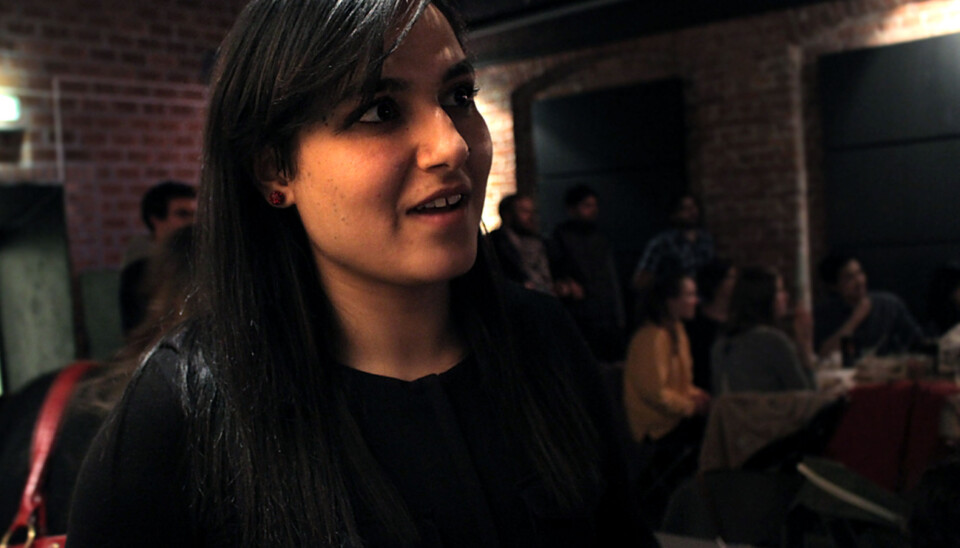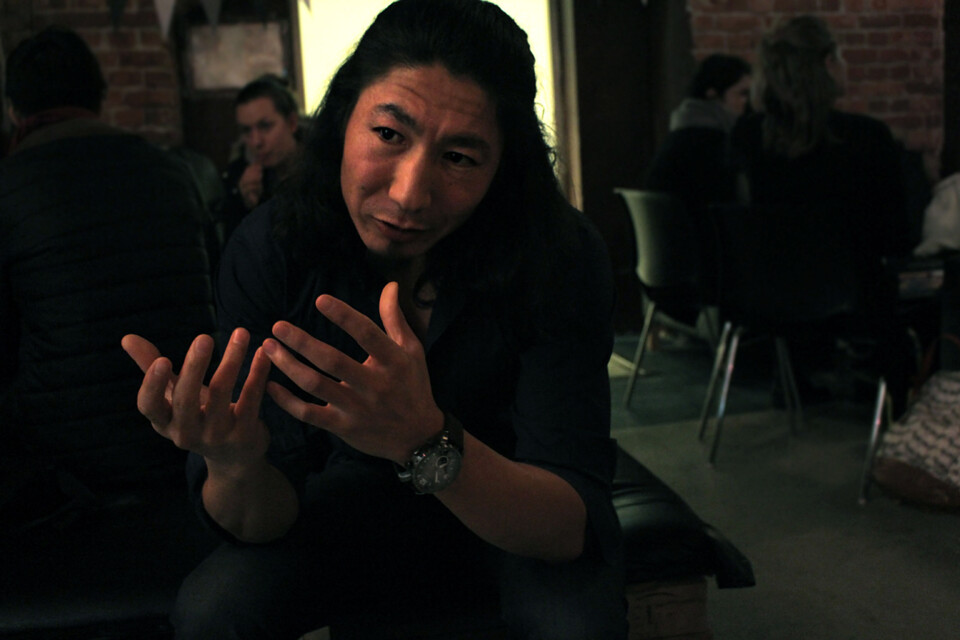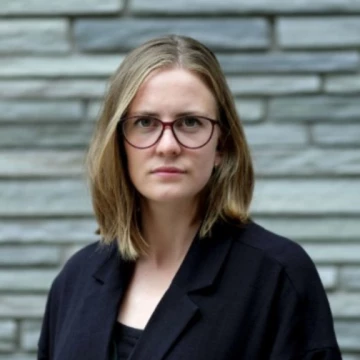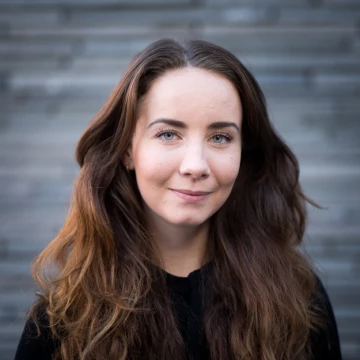
Hasina Shirzad hopes to finish her studies in Norway
Hasina Shirzad had just finished her bachelor’s degree in journalism and was working for the electoral commission in Afghanistan. Then the car she was travelling to the office with, exploded.
OBS! Denne artikkelen er mer enn tre år gammel, og kan inneholde utdatert informasjon.
The door to the student pub Samfunnet Bislet barely stays closed when there is a room full of international food to be tasted: Snails, pancakes, moussaka, pasta penne, matooke, arróz con leche and tortilla de patatas.
Samfunnet Bislet is located at Oslo and Akershus University College of Applied Sciences (HiOA).
In the line that stretches through three rooms and almost out the door are Hasina Shirzad and a friend. They met at the asylum reception centre in Larvik, and have taken the two hour train-ride to HiOA.
— We wanted to meet Norwegian students, and meet people of our age with similar interests, says the friend.
This Thursday evening, with food from all over the world, is also the start of HiOA’s mentor-programme for refugees and asylum seekers. Refugee-students and students at HiOA meet to discuss the subjects of their studies, and get to know one another.
I have had my life on hold for so long, it would be hard to start all over again.
I hope the new asylum seekers can be viewed as a resource, not as a cost, as they are now.
Read also: Dette gjør universiteter og høgskoler for flyktninger
Following a man through Europe
Hasina’s friend came to Norway two years ago.
— Since then I have been waiting. I have not been able to do anything else, I have just had to wait for an answer to my application for protection.
Hasina Shirzad came to Norway from Afghanistan about ten months ago, but before that, she was working in an election commission.
— I had just finished my bachelor’s degree in journalism and was working in politics. Then, wheni was in the office car, it blew up. I got wounds all over the right side of my body, and I was hospitalized for three months, and it took me about a year to walk properly. After that, we fled the country, and my mother had to sell everything she owned to pay a man to take me to Norway, Shirzad says.
This man took her to Norway by plane, because she was too weak to walk or travel long-distance on her own. She does not know which cities or countries she went through to get here.
— I remember very little from that trip. He just told me to follow him, and I did my best. At last he dropped me off at some police station in Oslo, she remembers. In March that will be a year ago.
A part of «Vinterfest»
Several universities and university colleges are doing a lot to help with the integration of refugees and asylum seekers. In Trondheim the university NTNU has expanded it’s norwegian course with about 100 students, started a two-years bachelor in engineering and the student organisation Start NTNU wants to engage students in solving integration issues.
Several universities around the country have had open lectures and conferences about themes related to the migrant-situation in Europe.
Through the initiative Academic voluntary work for refugees and asylum seekers the three-day festival «Vinterfest» was organized last week, by the Student Parliament, the international office and the international student union at HiOA.
The international dinner is a part of this festival, as a gathering and meeting-spot for international students, asylum seekers, mentors and other interested students.
In total, about 220 students visited Samfunnet Bislet for this international dinner.
In Norway
When Hasina Shirzad first came to Norway, she felt lonely. The other asylum seekers living at the reception center were mostly men, and if there were women, they were married and often had kids.
— I talked to my mother on the phone when I got here. We both cried. She cried every time I called her for six months. But, when I told her I was having a surgery for one of my punctured eardrums following the car bomb, she calmed down. Then she knew I was getting help, Shirzad says.
— It was very hard. I miss her.
Now Shirzad is waiting for an answer from UDI, on wether she is granted protection or not. At the same time, she is also waiting for an answer from NOKUT (the Norwegian Agency for Quality Assurance in Education). Because documents from Afghanistan are considered not verifiable documentation by NOKUT and will not be accepted through normal application, Shirzad has to apply for a more extensive approval, and this has taken time.
— The best thing that could happen to me this year would be that my documents were recognized, and that I could finish my master’s degree. I have had my life on hold for so long, both in hospital in Afghanistan and while I have been here, that it would be hard to start all over again.
The mentor
The mentor-programme is intended to help academic asylum seekers to make contact with Norwegian academics with the same background.
One of the HiOA-students who has signed up as a mentor is Ali Jan (picture below).

Jan came to Norway from Afghanistan 7 years ago, and is studying political science. Now, he would like to share his experience with the Norwegian society to help others.
— I hope the new asylum seekers can be viewed as a resource, not as a cost, as they are now, Jan says.
He is glad that the asylum seekers who arrive now are offered lessons in Norwegian.
— When I came here I had little opportunity to be integrated, but I think learning the language helps.







Logg inn med en Google-konto, eller ved å opprette en Commento-konto gjennom å trykke på Login under. (Det kan være behov for å oppdatere siden når man logger inn første gang)
Vi modererer debatten i etterkant og alle innlegg må signeres med fullt navn. Se Khronos debattregler her. God debatt!